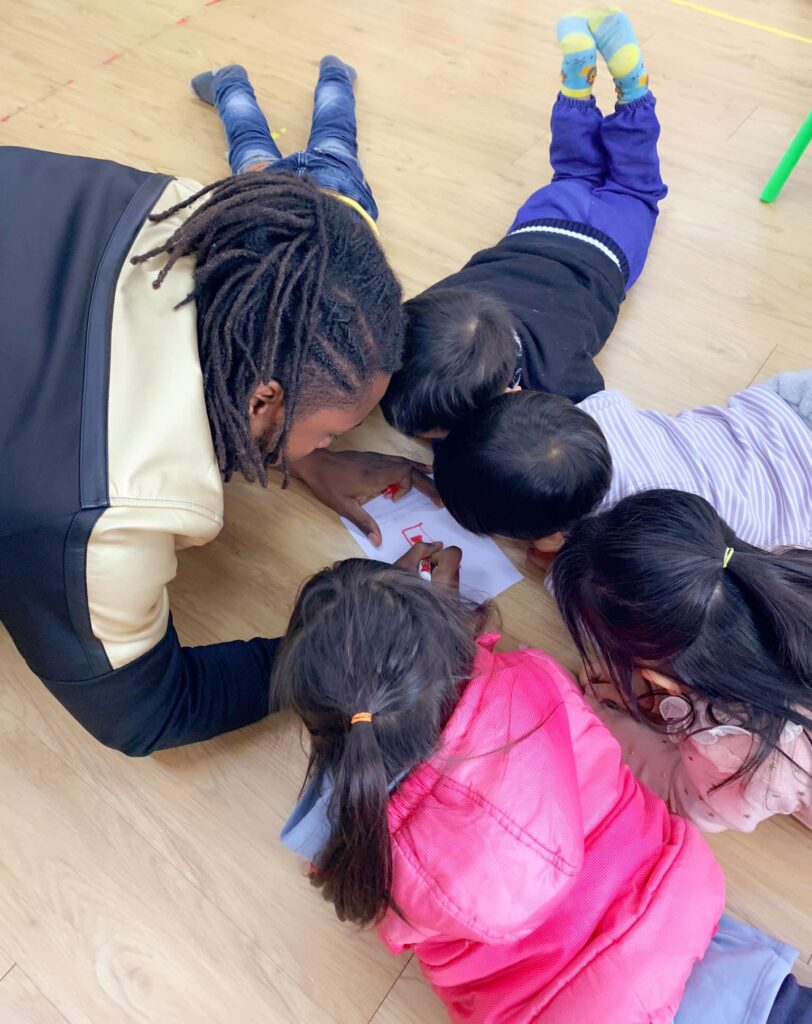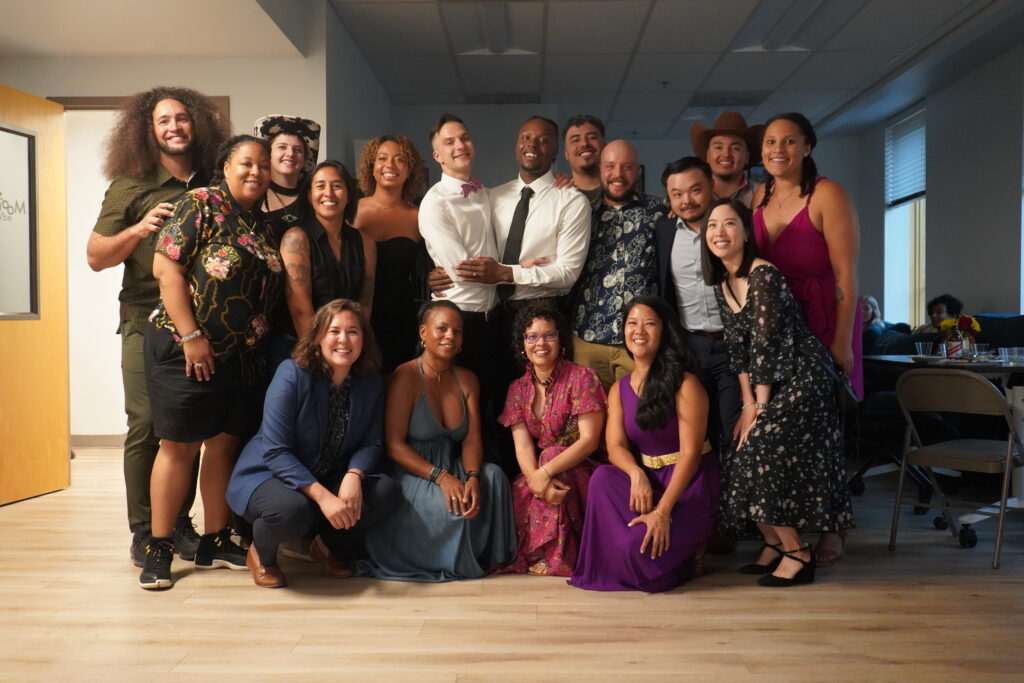
Numerous fellowships seamlessly blend both realms for students and young professionals passionate about teaching and entrepreneurship. The Fulbright U.S. Student Study Award is a gateway for recent graduates, allowing them to research abroad and immerse themselves in new cultures. Awardees also take part in the local community. Similarly, fellowships like the Citizen Diplomacy Action Fund (CDAF) empower alumni, including those from programs like Fulbright, to continue their impactful public service and diplomatic efforts, particularly in a post-pandemic world. The Watson Institute Venture Accelerator Fellowship and the Moonshot EdVentures Fellowship cater to individuals committed to positively impacting and providing resources for social enterprises and education-driven initiatives.
Embarking on an extraordinary journey that weaves together academia, entrepreneurship, and the rhythmic beats of hip-hop, Miles Iton serves as a living testament to the transformative power of passion-driven education. Having navigated a spectrum of prestigious fellowships, including the above opportunities, Miles brings a unique perspective to the crossroads of creative arts and learning. In this interview, we delve into his Fulbright experiences in Taiwan, including the English Teaching Flagship Award (ETF) to Taiwan, explore his innovative venture, Lo-Fi Language Learning, and examine the profound impact of fellowships on his personal and professional growth.
During your time as an undergrad, how did you find your passion for teaching? What are the roots of your interests in hip-hop?
My younger self was enamored with all things related to the art of spoken word. Before university, this manifested itself in leading Sunday School and other church-based youth services. It hadn’t clicked in me yet that the passion I was chasing was the experience of introducing new ideas to people.
My world got a little bigger when I entered New College of Florida in 2014. I started exploring what this passion looked like through philosophy, Greek poetry, and black American history. Thankfully, New College was an institution that allowed us to take complete control of our educational experiences; they even let us design our own courses! My advisor, Dr. Carl Shaw, saw how my ability to freestyle rap fed into my skill set for breaking down the verses of the Odyssey in his Ancient Greek class, so he encouraged me to coalesce these skills into a course offering for hip-hop and writing that I could share with others while under his tutelage. I wouldn’t have imagined that course would go on to define my career interests for the next several years, but such is the benefit of the Liberal Arts!
What made you apply for a Fulbright Award, and why Taiwan?
My major was in Philosophy, but I became burnt out at the prospect of a career spent writing for this intriguing yet very specific & limited audience. I began leaning more into my extracurricular activities, creating music, films, and live shows as part of a group of creatives on our campus who called ourselves n.e.Bodied Entertainment. I also took a leap of faith and joined a first year Mandarin Chinese language class in my final year for the sake of intellectual curiosity. Lo and behold: the Fulbright Taiwan program offered an MA in Creative Industries that didn’t require me to be fluent in Mandarin but would give me the chance to develop both my language and creative proficiencies even further. I had never heard of this field of study before, but it sounded right up my alley. I was open to anything that kept me from copping out into an immediate graduate or law school tenure that I was admittedly lukewarm on at the time.

How was your time as a Fulbright Awardee in Taiwan? Did you have creative liberties while you were teaching?
My grant was a US Student grant, so I was enrolled in Tainan City’s National Cheng Kung University (NCKU) as an MA student. My concentration within the major was Industry and Service Innovation, which was oriented towards project management and leading creative enterprises.
An average week was split between hands-on group projects anywhere in the city, deep qualitative research, and presentations/discussions between the cohort on things we found interesting within our individual research interests. For example, one of our projects saw us study how a homeschooling network born out of a red bean dessert stand managed a building/neighborhood revitalization project. Another allowed me to create my idea for a music gig-sharing app and hypothesize a going-to-market strategy. The connection I discovered through these projects is that educators share common ground with social entrepreneurs and entertainers. They are service providers who do not need to be profit-driven to find funding for innovation.
I devoted my thesis research to the island’s developing Ministry of Education initiative to streamline & normalize English language learning into the school system, investigating how the effects of policy decisions could spark the English cultural/creative industry’s intersections with the education industry. I led a hip-hop themed English class for 6th graders that I used as an opportunity for action research. They gave me full creative liberties with the support of a local co-teacher in the room. Thanks to this experience, I discovered that many leaders within the local education system (and not in Buxibans 補習班, popular after-school English teaching services known as ‘cram schools’) are open to nontraditional teaching themes. Younger students tend to prefer a cultural component or module to their language learning classes. This led me to realize that arts-based, culturally responsive teacher training could be just as practical a means of bringing creativity to the classroom as direct K-12 teaching or curriculum development activities.
What were some activities you were able to engage in while in Taiwan?
I joined Fulbright as an MA student, but still somehow found myself performing and teaching. I spent my first year taking classes by day and exploring the hip-hop scenes by night. A full week for me could be spent just as much on stage as it was in the classroom! I continued working on English/Mandarin music projects, volunteered for a semi-regular DJ set at a local bar, and frequently traveled to cities such as Kaohsiung and Taipei whenever the opportunity arose. As 隨便 (suí biàn – casual and careless) as this may have seemed, it was the kind of creative freedom I needed as an arts-inclined academic to develop my thesis topic and set out to teach hip-hop English classes. It quickly became interesting enough for me to continue as a hobby outside of my thesis research.

Can you tell us about your Lo-Fi Language Learning program? What inspired you to create this? How did you access the necessary resources?
I joined a startup business competition in 2019 called the ‘Be Young! Beyond!’ Startup Pitch Competition at the National Taiwan University of Science and Technology. It initially piqued my interest because it would satisfy a graduation requirement for my program, but it soon reminded me of my deeply ingrained entrepreneurial background: I had actually forgotten I was a business & entrepreneurship major in my magnet high school.
Once I expressed to my team an interest in building our pitch around something music and hip-hop related, Lo-Fi Language Learning was born as a hip-hop education company that could bring a globalized, culturally-relevant perspective to English language learning. It became the north star of my research interests for the rest of my time at NCKU and an influential cornerstone of the project I based my thesis experiment on.
At first, Lo-Fi consisted of K-12 workshops and classes utilizing a methodology I developed (the Irie/Miyagi formula) for integrating music, visual, or arts activities into English lessons. Though hip-hop education was not new to the scene by any means, our activities found a way to integrate other aspects of hip-hop, such as body language, sound design, and visual arts, to build students up toward speaking confidence: a primary focus of Taiwanese English education. After the pandemic, we pivoted into teaching this methodology directly to prospective teachers as a TEFL (teaching English as a Foreign Language) certification course, making us an accessible introduction to a career in arts education available for college students & adults who want to transition into teaching but continue developing in their art practice. We’re even taking it a step further and working on expanding into a complete ‘study abroad’ program that brings our students directly to Taiwan! I am currently using my experience as an EMI (English as a Medium of Instruction) grantee in Tainan, Taiwan’s National Cheng Kung University, to do more research on these prospects.

Afterward, you went on to win the Watson Institute Venture Accelerator and Citizen Diplomacy Action Fund Awards. How did they benefit you professionally and personally?
The Watson Institute’s Venture Accelerator was a semester-length, all-ages program created to accelerate social entrepreneurs at any stage of their venture creation. It was also the program that came in handy for both my personal and professional lives. I had to abruptly return to the United States in the midst of COVID’s uncertainty and found myself in a pretty volatile space while waiting to hear how their traditionally in-person fellowship would progress, given the circumstances. Thankfully, they decided to offer their usual lodging option in Boulder, Colorado, for fellowship winners, which provided me with the stability to continue working on Lo-Fi.
The Citizen Diplomacy Action Fund came soon after as the first grant Lo-Fi had ever received. As a Department of State program, it required forming a team with other DoS program alumni to carry out a specific project. This grant allowed us to build our flagship Arts’ n EFL program: a 3 month hybrid TEFL (Teaching English as a Foreign Language) certification course in collaboration with BridgeTEFL that served as a vehicle for our brand of arts-educator training. Even more than the funds, however, they gave me the confidence of knowing that Lo-Fi could survive beyond myself or my own circumstances.
Later, you applied and won the Moonshot EdVentures Fellowship. What are your plans for this opportunity?
Moonshot EdVentures is a Denver based, three stage fellowship for helping educators build schools or service-based education ventures. I had actually received a recommendation for their program after a rejection from a similar education accelerator. By then, I had settled into a full-time job and often questioned how – and if – Lo-Fi could continue in this brand new setting. Their program connected us with many of the necessary legal/business resources, pilot program funding, and local collaborators we needed to figure out what our next steps should be.

And finally, can you share any tips and advice with our readers?
I don’t believe in the universal necessity of the ‘starving artist’ phase, but I understand how easy it can be to experience it during your career. One of the hardest things about trying to integrate your art into a profession is balancing the time needed to create or practice with the time required for managing your affairs – and neglecting the latter is how I believe many creatives can easily fall onto such challenging financial circumstances. Approaching my creative practice as a transferable skill is how I managed to give myself an edge in fellowship applications, cross over into new industries, and establish a vantage point for building my small business acumen. Thus, the best tip I can offer to anyone of a creative bent perusing Profellow at the moment is to revere & regard your creativity as much as you would like a hiring committee to!
Interested in Fulbright or social entrepreneurship fellowships? Create a free ProFellow account and discover new opportunities you want to apply to!

© 2024 ProFellow, LLC. All rights reserved.